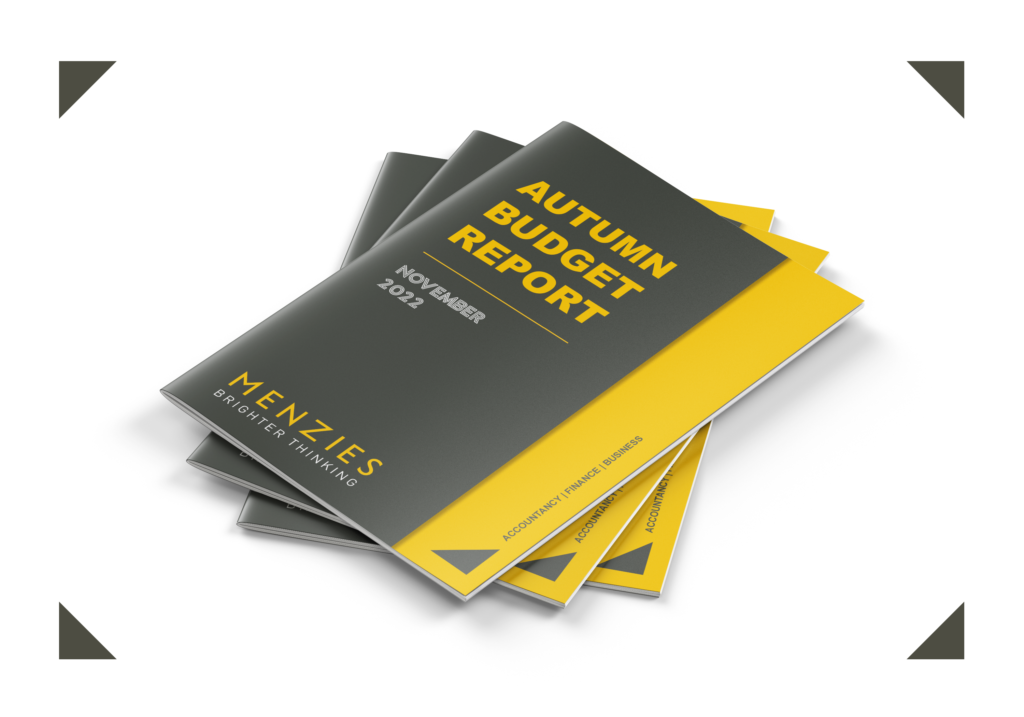Chancellor Jeremy Hunt’s Autumn Statement has reintroduced a semblance of stability to the country, especially for the most vulnerable, and set out a decisive plan for growth following a series of worsening economic growth forecasts.
Even after a calm, non-reaction from the markets, business support organisations have given the Autumn Statement a wary welcome, with some companies and investors wishing there was greater incentives for growth.
The lack of clarity about whether the Energy Price Guarantee for companies will continue beyond the start of April and the decision to freeze the National Insurance Contribution (NIC) secondary threshold for employers until April 2028, have been seen as negatives. Though, the Chancellor has made it clear that a ‘new targeted approach’ to support companies that are struggling to pay their energy bills is on the horizon.
How does the Autumn Budget affect you?
Revaluation Of Business Rates
The Government’s decision to go continue with the revaluation of business rates next year, as to reflect changes in property values, will result in costing some companies more.
But the Chancellor has promised to aid those most impacted by the changes, with a £13.6 billion package of support to help smooth the transition to their new bills. This includes plans to freeze the business rates multiplier for another year, and to provide additional relief of up to 75% for retail and hospitality and leisure companies.
The Government has promised that, for companies that see their bill fall, they should see the benefit straight away, due to the ending of downward transitional reliefs caps.
Infrastructure And R&D Spending To Be Protected
The Statement contained significant announcements regarding the Government’s ongoing commitment to infrastructure spending. The Chancellor confirmed that Sizewell C, the Northern Powerhouse Rail programme and HS2 to Manchester will progress as planned, with £600 billion of investment over the next five years.
The Chancellor also confirmed that the budget for research and development would be protected. Which is great news for companies that might be looking for chances to capitalise on large-scale capital investments to further their own growth plans.
The Chancellor set out a vision to ‘create the world’s next Silicon Valley’, which will be well received by the UK’s flourishing community of fast-growing, digital-tech companies.
Alterations To R&D Tax Incentives
The Chancellor announced plans to restructure tax breaks for companies investing in research and development, with an increase in the competitiveness of the Research and Development Expenditure Credit (RDEC) scheme for larger companies.
However, rates were lowered for the SME scheme, which has recently faced substantial criticism because of the significant number of wrong or false claims submitted.
Overall, public spending in this area will remain unchanged, reflecting the Government’s recognition of the importance of R&D activity in boosting growth.
Costly Changes To Dividends And Capital Gains Tax
For investors, the Autumn Statement introduced some noteworthy changes to allowances and exemptions that may prove costly, with higher taxes to pay on both dividends and profits from the sale of shares. From April next year, the dividend allowance will be cut from £2,000 to £1,000 and from April 2024 it will halve again to £500. From April the annual exemption amount for capital gains tax will fall from £12,300 to £6,000 2023, before dropping again to £3,000 from April 2024.
This is going to increase the tax take for investors, however there will be some relief that the Chancellor didn’t raise the headline rate of capital gains tax, which may have had a more immediate and significant effect.
Stealth Tax – Freezing Personal Allowances
The choice to freeze personal allowances for basic and higher rate taxpayers until April 2028 is a stealth tax, which will increase the tax take from every taxpayer in the country over time, regardless of how much they earn.
But the critical change in this area of taxation was for additional rate taxpayers, who will see the threshold to pay the additional rate of 45% drop from £150,000 to £125,140 from 6th April 2023.
This will drag a substantial number of people from the 40% tax rate into the 45% tax rate, with those whose income is over £150,000 paying an additional £1,243 of tax per year.
This change will affect both middle earners, and those with a higher income. For some company shareholders, the cumulative effect of changes to income tax and dividends may mean that they need to re-evaluate their remuneration strategy.
Conclusion
For companies, the way forward is now clear. With a definitive plan to budget against, they must be prepared to back their own growth.
The Chancellor has set out a long-term plan for growth and while taxes are rising for companies and individuals alike, the Government has committed to protecting public spending in order to drive growth and ultimately accelerate the pathway to financial rejuvenation.





